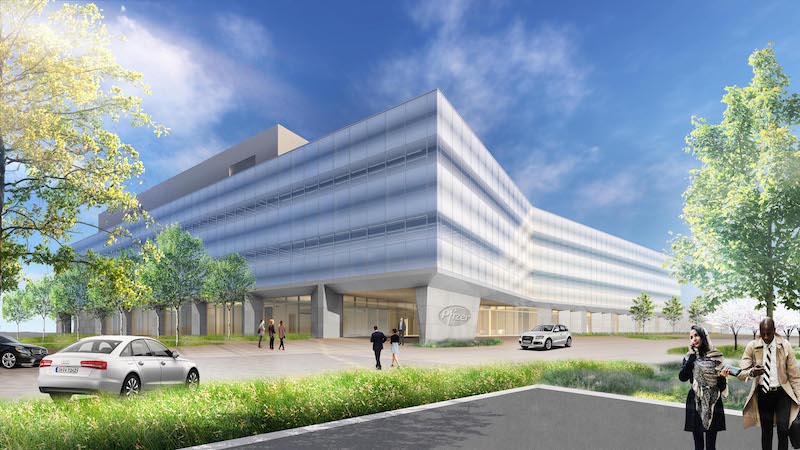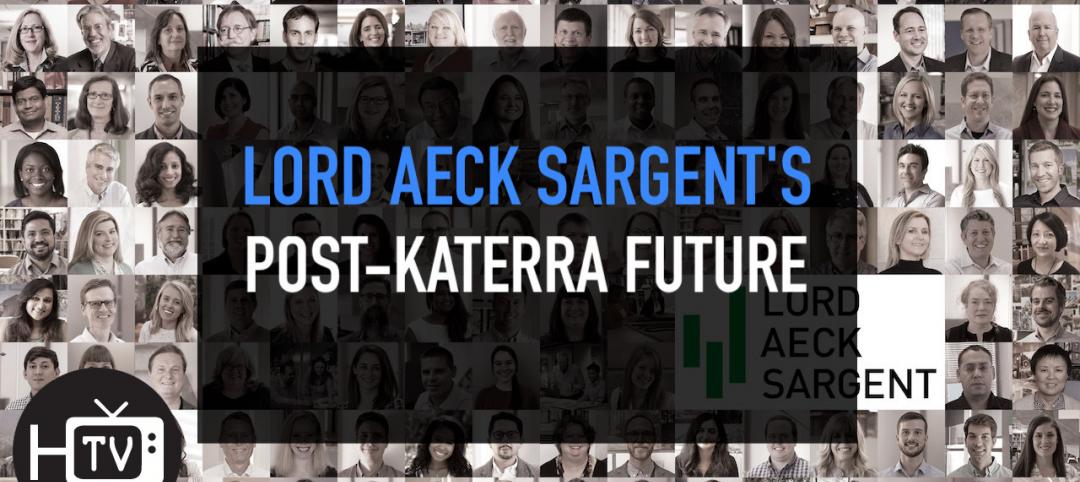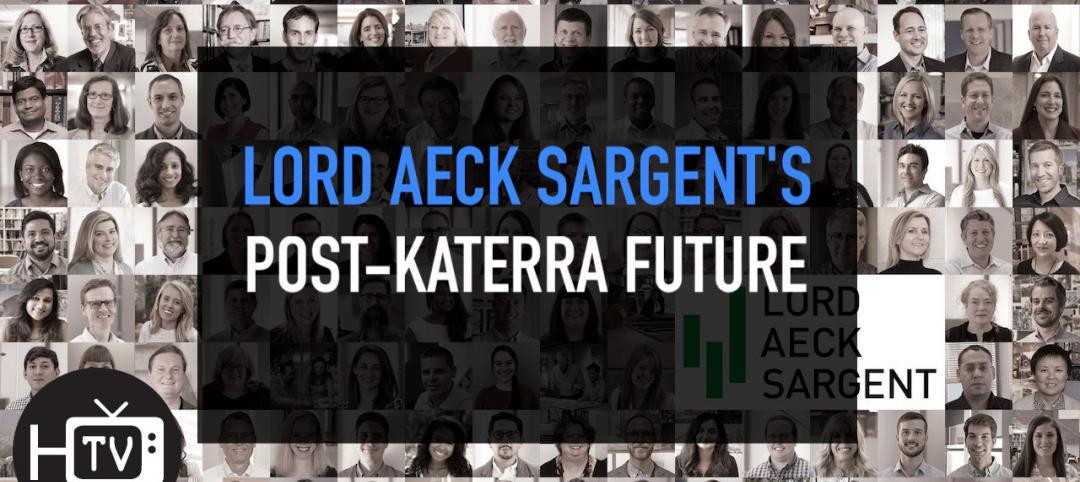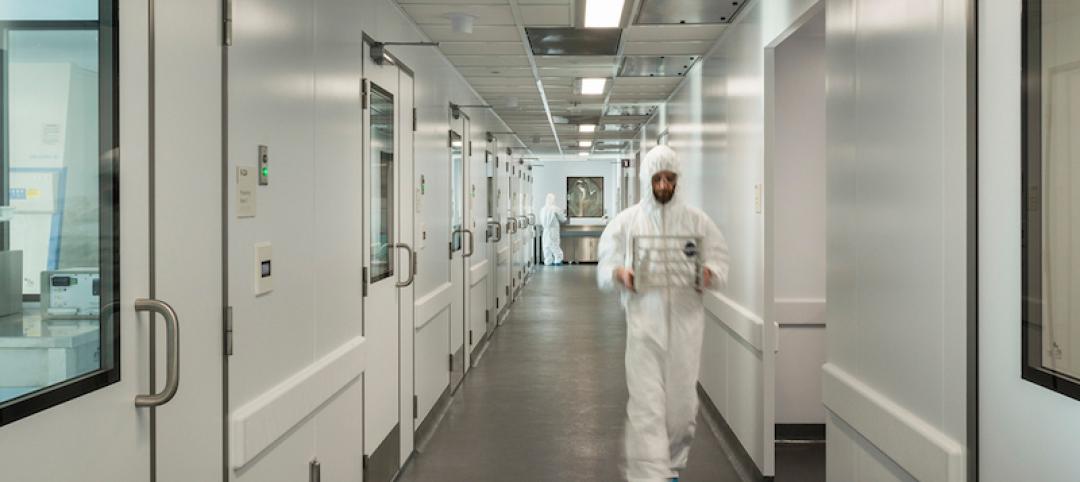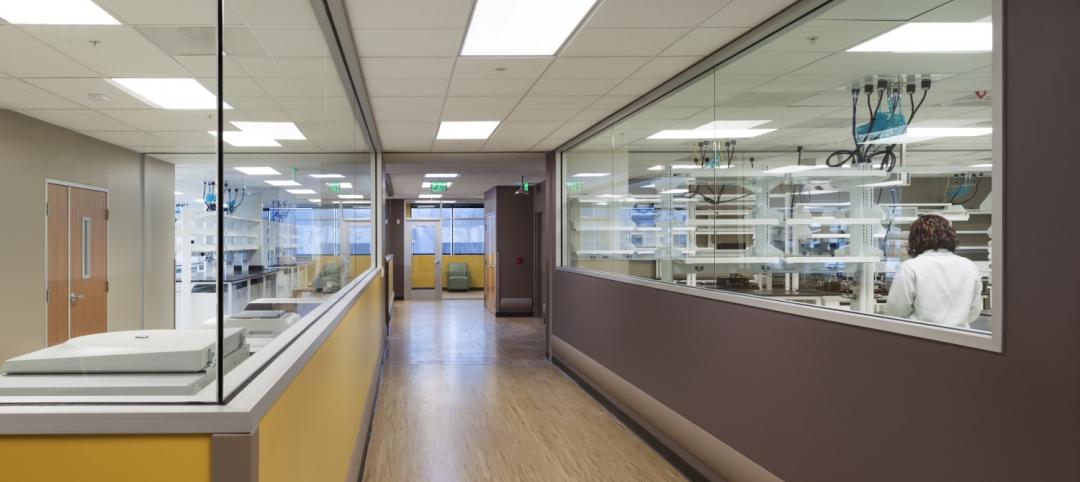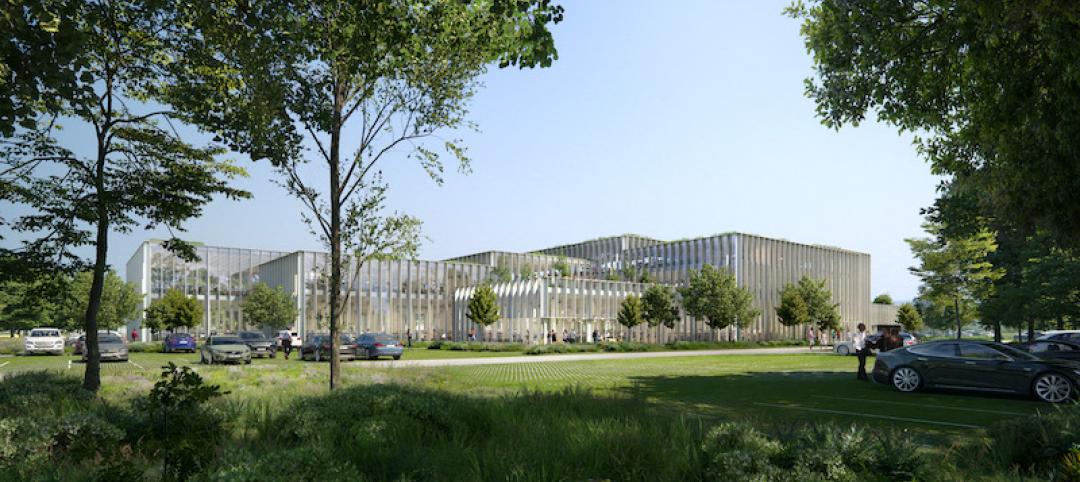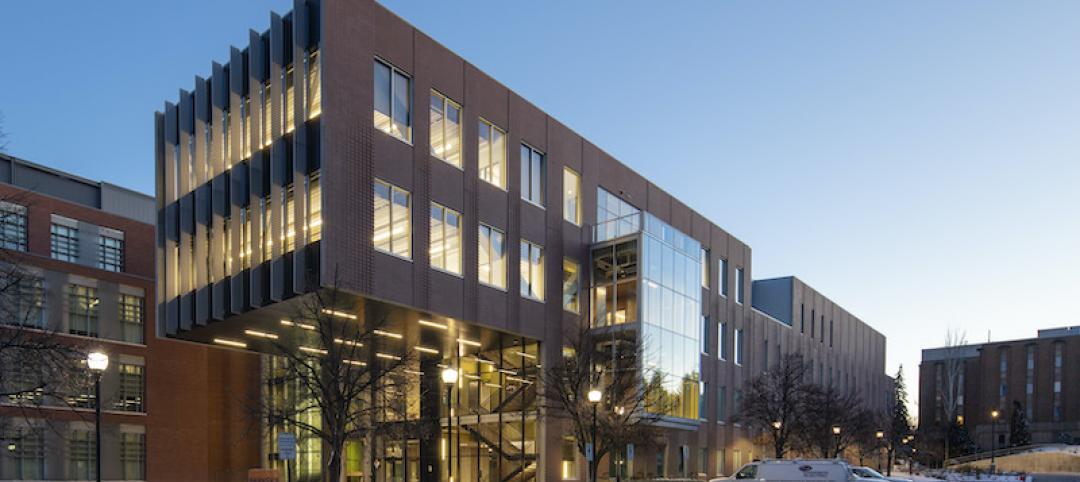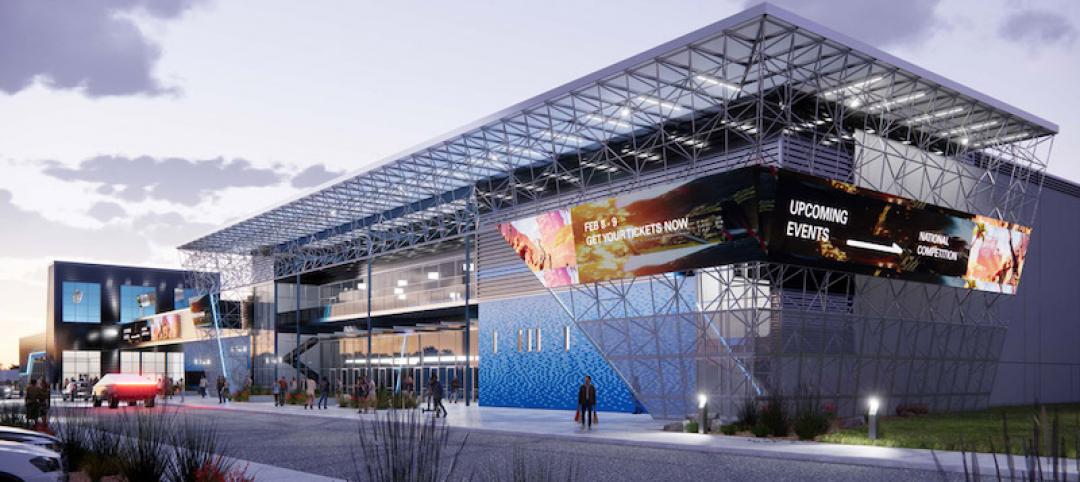In late June, Pfizer, the nation’s second-largest pharmaceutical supplier, broke ground on BioPlace, a $250 million, 285,000-sf R&D and process development facility in Chesterfield, Mo.
The new campus, when completed in mid 2019, will house the company’s BioTherapeutics Pharmaceutical Sciences Group, and consolidate more than 450 employees who currently work at multiple locations around St. Louis, including some who working out of leased space in Monsanto’s research center.
Pfizer intends to hire 80 more employees over the coming years to support research at this 32-acre site.
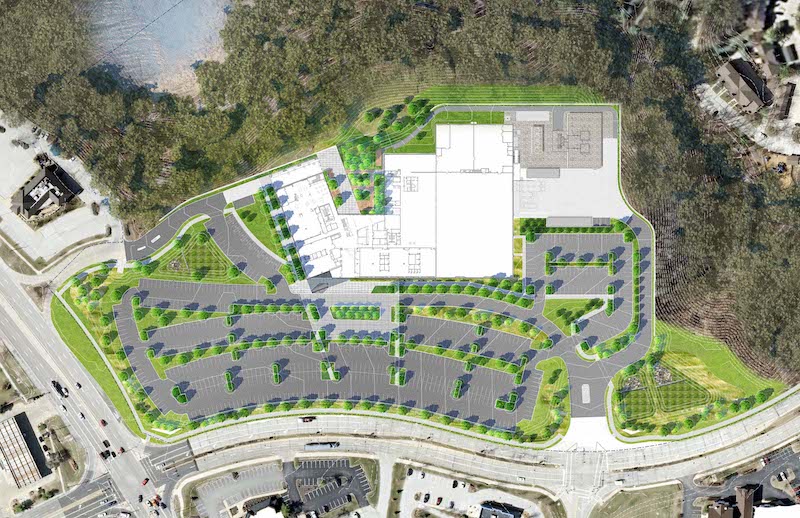
The 32-acre campus will allow Pfizer to consolidate more than 450 of its employees who are scattered at various leased sites around St. Lous. Image: Clayco
The focus of this facility, according to Pfizer’s website, will be on advancing the company’s portfolio in biologics, vaccines, and gene therapy by “developing manufacturing processes and dosage forms applying state-of-the-art analytical technologies.”
The campus will feature a floor plan with flexible laboratory layouts, scientific casework and utility hookups, open office and collaboration spaces, and increased conferencing technologies where researchers can collaborate.
A partnership of Forum Studio and Ewing Cole designed the architecture, landscaping, engineering, interior, and lab process areas for BioPlace’s research and office spaces. Clayco is the design-builder on this project in tandem with its development subsidiary CRG.
Once completed, Pfizer will lease the space from Clayco and CRG, which is providing turnkey build-to-suit services, according to the St. Louis Post-Dispatch.
Related Stories
Architects | Aug 5, 2021
Lord Aeck Sargent's post-Katerra future, with LAS President Joe Greco
After three years under the ownership of Katerra, which closed its North American operations last May, the architecture firm Lord Aeck Sargent is re-establishing itself as an independent company, with an eye toward strengthening its eight practices and regional presence in the U.S.
Architects | Aug 5, 2021
Lord Aeck Sargent's post-Katerra future, with LAS President Joe Greco
After three years under the ownership of Katerra, which closed its North American operations last May, the architecture firm Lord Aeck Sargent is re-establishing itself as an independent company, with an eye toward strengthening its eight practices and regional presence in the U.S.
Laboratories | May 6, 2021
The big shift: How laboratory design should respond to personalized medicine
Crucial to the success of personalized medicine is the “big shift” away from large-scale pharmaceutical manufacturing to small-scale lab manufacturing.
Laboratories | Mar 10, 2021
8 tips for converting office space to life sciences labs
Creating a successful life sciences facility within the shell of a former office building can be much like that old “square peg round hole” paradigm. Two experts offer important advice.
Giants 400 | Dec 3, 2020
2020 Science & Technology Facilities Giants: Top architecture, engineering, and construction firms in the S+T sector
HDR, Jacobs, and Turner head BD+C's rankings of the nation's largest science and technology (S+T) facilities sector architecture, engineering, and construction firms, as reported in the 2020 Giants 400 Report.
Giants 400 | Dec 3, 2020
2020 Laboratory Facilities Sector Giants: Top architecture, engineering, and construction firms in the U.S. laboratory facilities sector
Affiliated Engineers, HDR, and Skanska top BD+C's rankings of the nation's largest laboratory facilities sector architecture, engineering, and construction firms, as reported in the 2020 Giants 400 Report.
Laboratories | Nov 16, 2020
Washington State University’s new Plant Sciences Building opens
LMN Architects designed the project.
AEC Tech Innovation | Sep 18, 2020
New Innovation Center should heighten Port San Antonio’s tech profile
The facility will include a 2,500-seat arena and serve as new home for the city’s S&T museum.
Laboratories | Aug 25, 2020
Video: What's driving the boom in life sciences real estate?
JLL's Audrey Symes discusses the drivers of growth across the nation's life sciences cluster hubs.


